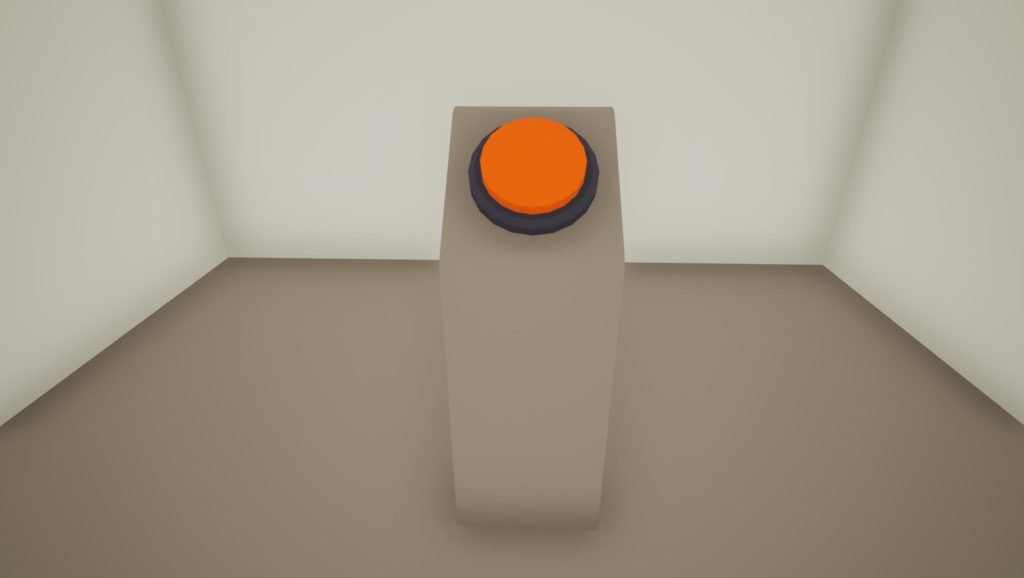
PC
I do tend to reserve Buried Treasure reviews for games that I like without reservation. I have reservations about The Corridor. But also, it’s too interesting an idea not to talk about. And too interesting (to me at least) to explore what it gets wrong, especially in light of how much it gets right.
The central conceit of The Corridor is, well, see – this is the main issue. The central conceit is that the game doesn’t want to be played, and is annoyed with you for playing. But the action, your intended goal in the game, is to press a button to turn it off. And this contradiction is so overt, so all-encompassing, that it confuses the whole excellent design. You press the orange button, the game closes down, and you start it again. The game is then annoyed with you for playing again, but responds by making it harder for you to press the orange button! So its efforts are to keep you playing? Yeah. It’s an issue.
Which is a shame, because the actions of the game are lovely. It’s strongly inspired by The Stanley Parable, a game in which your actions are scrutinised and commented upon by an invisible, all-seeing narrator. And in the same way as Galactic Cafe’s game, it messes with space, time, direction and so on. But it’s enormously inventive in its own right. It does some very innovative things with the Unreal Engine in which it’s built (including some nice breaking the frame as the engine’s own UI appears in places), and even goes further, appearing to directly mess with your PC itself (it isn’t going to do any harm, don’t worry, it couldn’t). I love that stuff. I loved it most when the beyond glorious OneShot did it. I laughed out loud when The Corridor seemed to escape its own boundaries and exist outside of itself. But I still didn’t understand why it was doing it.

That’s one of the two big issues here. The other is the narration. I assume it’s by the game’s one-man development team, Thomas Mackinnon, and, well, I can only be rude here. He’s not that good. And it’s such a shame, because the writing’s fine, and with a professional delivery the jokes could hit home. Hopefully if it sells a bunch he’ll be able to afford someone to do that? Maybe someone will offer to do it cheap? But imagine if The Stanley Parable had been Davey Wreden muttering into a hissy mic in an echoey room – it would rather have taken the edge off.
Although it wouldn’t deal with that more nagging issue – that the whole concept doesn’t square up. And I get why. It’s a difficult thing to narratively justify: a game that the player is constantly restarting with the singular aim to switch it back off. Here the game is angry that you restarted, but then uses a series of ever more intricate devices to prevent you switching it back off again. It laments that you’re playing it at all, while trying to stop you from not playing it. And sadly, no, this doesn’t become a meta-commentary of its own nature. I think the idea was meant to be that the game is trying to prevent you from finding out what happens when you press the button by terminating itself? But the reality is, from the start, you’re trained that pressing the button switches it off, and then you repeat that loop.

I suppose the answer could have been that the game wants you to stay inside it, but you’re torturing it? You’re booting it back up again only to leave as soon as possible because of a cruel desire to make it suffer? See, that’s not particularly appealing. I think what’s happened here is Mackinnon has come up with what seems like a great idea, but one that just doesn’t quite work no matter how it’s approached. But boy has he been smart and inventive as he’s done it.
That’s what’s so interesting about this! I want you to buy it and play it. I want you to see all the clever things it does, all the lovely surprises, all the silly moments. But I don’t want to recommend you do that, then you play it and say, “But hey, it just doesn’t make sense – and also I wish he’d have gotten a theatre school friend to do the voice over.” You know that already, go in and enjoy it anyway. And heck, it’s £1.50. You’d spend more on a glass of Coke.
- Thomas Mackinnon
- Steam (It’s also in the Humble Choice thingy)
- £1.40/$1.70/€1.40
All Buried Treasure articles are funded by Patreon backers. If you want to see more reviews of great indie games, please consider backing this project.






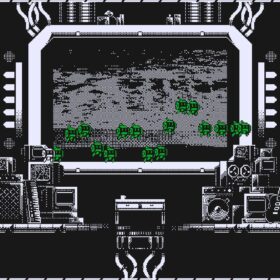



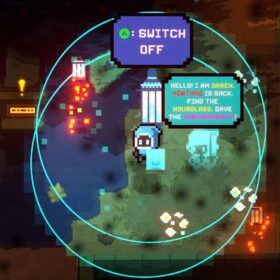




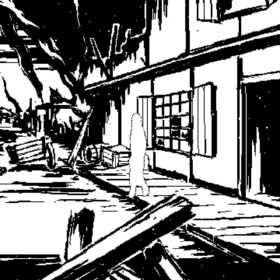




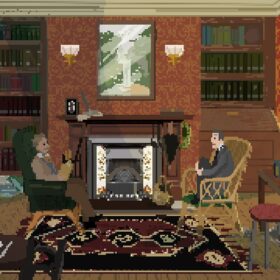




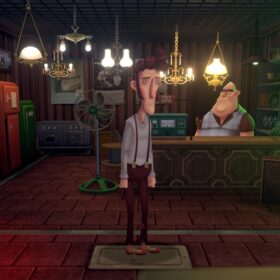






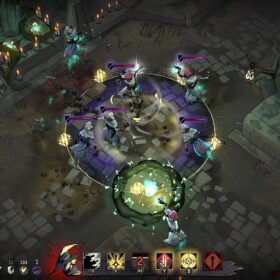

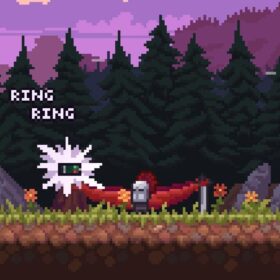
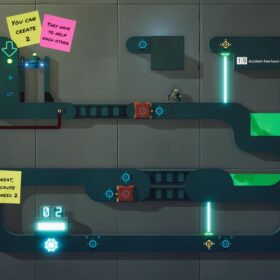
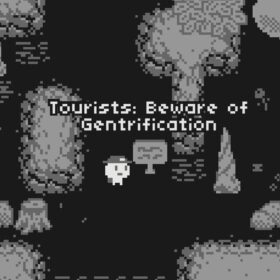

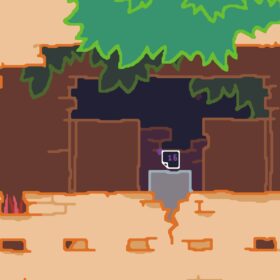
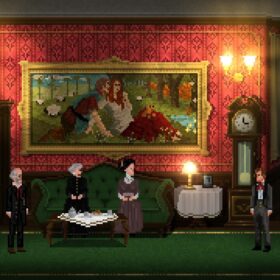


Without changing very much at all, this could be my review for There Is No Game: Wrong Dimension. Same shtick (“game doesn’t want to be played”), same issue with developer-as-narrator, some very clever ideas throughout.
For a bonus giggle, read the specs and awards on the linked Steam page.
I suspect this review was written by the game itself, who doesn’t want us to play it.
This game blue screened my PC. My PC is old, crappy, and randomly crashes by itself anyway, but it was still disconcerting given the framing ands subject matter!
I can see the criticisms, but for the cost and outlay the review should start by saying this is absolutely worth jumping on right now for a fun 30 minutes of your time. I thought the conceit was that the game was worried what you would think about it, hence the final press. Like a designer being worried about the opinion of their work? Still that doesn’t exactly work either, its maybe better just not to think about it.
I agree wholeheartedly with your overall take on the game not really being able to argue against being played. After all, the game existing is proof that it wants you to ignore it’s protests and keep playing. With the vocal work though I actually kinda like it. It makes it feel more like each response is done off the cuff, as the developer realizes the last gag didn’t end the playthrough. It makes the game almost conversational. Great review though, I just finished playing it and wanted to see what somebody else was thinking about it!
The Corridor is fun but i have to walk like 1m times to compete the game.
But it kicks you everytime out it’s a lttle annyoing.